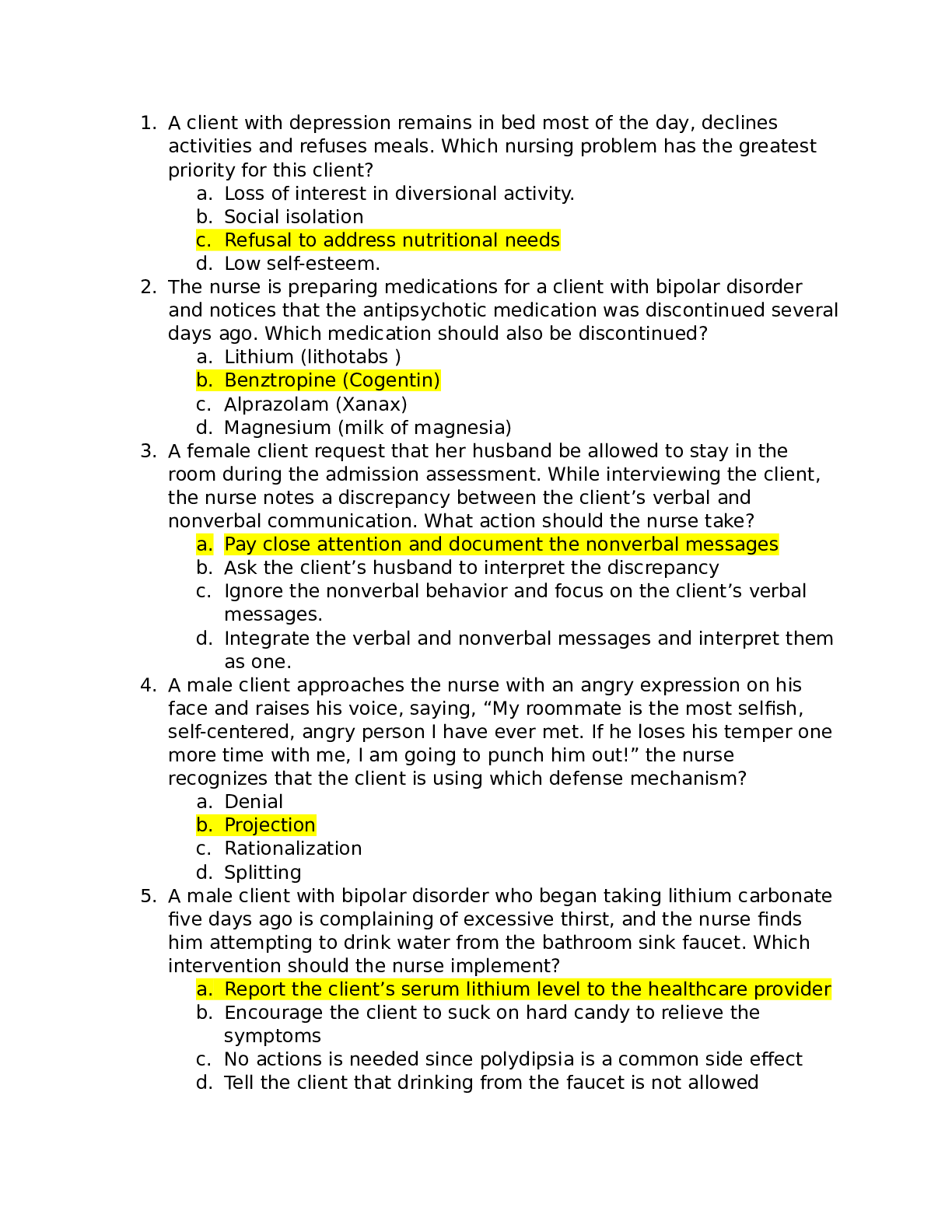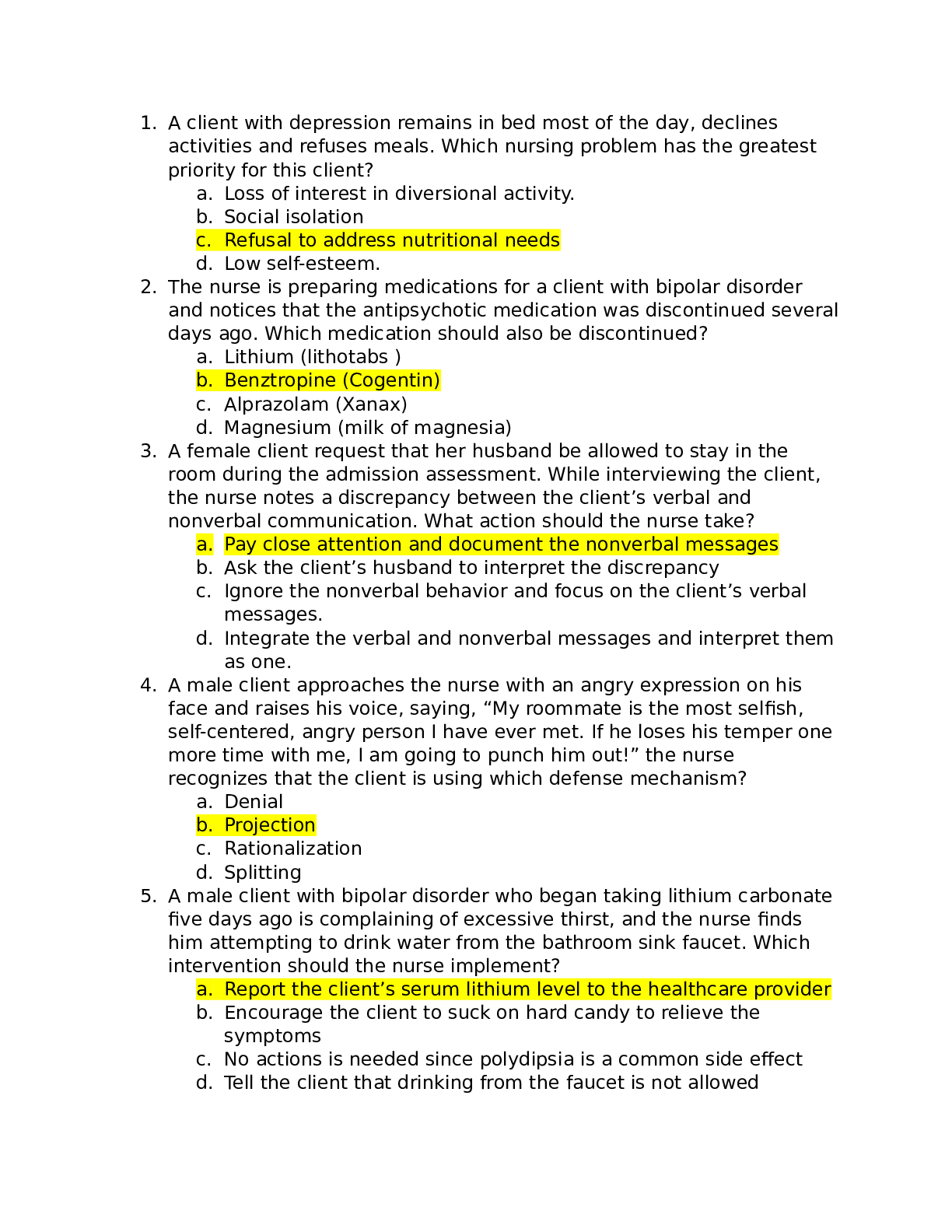HESI RN MENTAL HEALTH 2018 V2
Course
Project Management
Subject
Chemistry
Category
Questions and Answers
Pages
27
Uploaded By
ATIPROS
Preview 5 out of 27 Pages


Download all 27 pages for $ 12.00
Reviews (0)
$12.00
